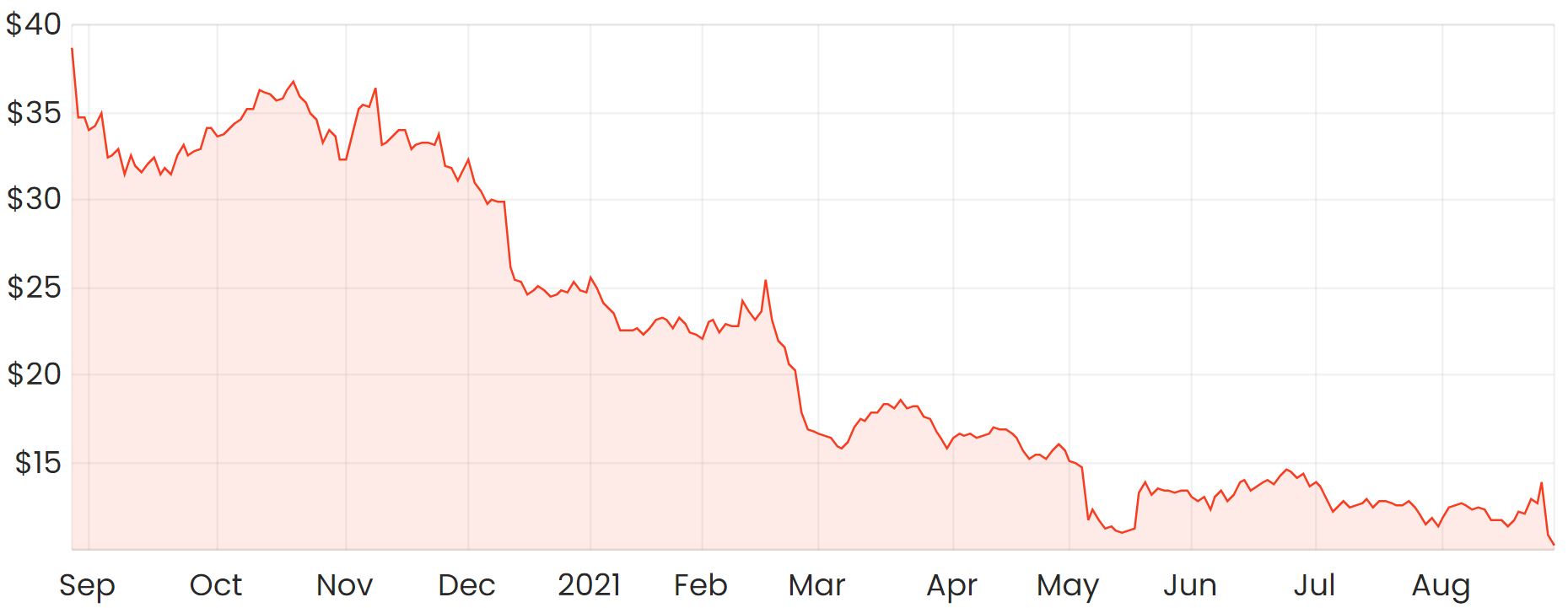Shares in artificial intelligence company Appen Limited (ASX: APX) fell another 6% on Friday. This means that since releasing its HY21 result lastWednesday, Appen’s shares are down over 25%.
For a full breakdown of Appen’s recent results, click here to read my colleague, Jaz Harrison’s article: HY21 result: Appen (ASX: APX) share price sinks.

Growth slows
When I last wrote about Appen before it reported, I mentioned that I’d be watching the performance of its global division that could indicate the start of a turnaround.
It was anticipated that Appen’s first half of the year is usually slower than the second due to timing around project delivery. This saw global revenue come in at $148.5 million, a 9% decrease on 1H20.
Group underlying EBITDA was $27.7 million, down 14.3%, and considerably under consensus forecasts. This was partly due to the increased investment in its New Markets segment.
Management flagged a decrease in full-year EBITDA guidance and is now expecting somewhere between $81 million and $88 million for the full year.
Underlying net profit after tax (NPAT) fell 35% to $12.5 million, which was largely affected by increased amortisation from product development.
What does the future hold for Appen?
Management have been saying for quite some time that some of their large customers have been reprioritising their projects and resources in light of COVID.
If you take the view that these complications are in fact transitory, it could be business as usual for Appen moving forward.
Unfortunately, I don’t think the market is buying the recovery story as much anymore. It’s true that AI is still a growing industry, but it doesn’t seem to be reflected in Appen’s recent performance which seems odd considering how other tech companies have stood to benefit from the pandemic.
Instead, there’s been more evidence to suggest that companies have been internalising AI training data and using AI itself to label data rather than a human-trained workforce.
If this is true moving forward, I think it’s reasonable to assume AI training costs will fall as there will be more competition and data labeling will become a less niche industry.
Summary
Some might be starting to see some value in Appen’s shares considering the huge drawdown.
One of the main risks here is that the turnaround might not happen as one would expect. If this is the case, buying into a company with a decreasing intrinsic value can be a quick way to erode your capital where time is unfortunately working against you.
If I was considering becoming an Appen shareholder, I’d be wanting to see more demonstrated evidence of a turnaround.










